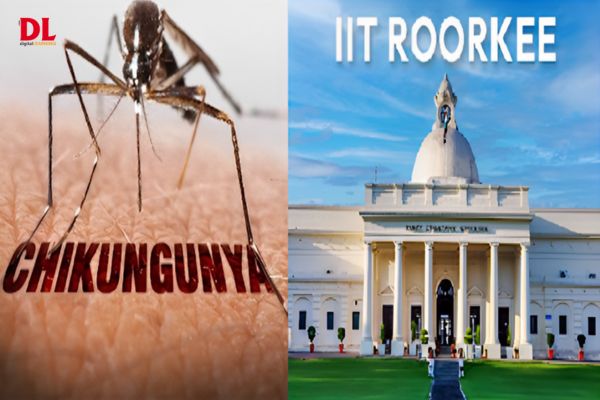
Researchers at IIT Roorkee have discovered a possible solution for a mosquito-borne disease – Chikungunya. According to IIT Roorkee, Efavirenz, a drug commonly used to treat HIV, may also be an effective treatment for Chikungunya disease, as research indicates it can reduce Chikungunya virus replication in both laboratory settings and mouse models. Chikungunya causes join pain, muscle pain, fever and rash.
This discovery comes from a study conducted by IIT Roorkee in collaboration with the Indian Council of Medical Research (ICMR). The research demonstrated that Efavirenz lowered virus levels in cultured cells and in infected mice. The National Centre for Vector-Borne Disease Control reports that Chikungunya is a persistent public health issue in India, with cases emerging in various states annually. Currently, there are no approved antiviral treatments specifically for Chikungunya. Additionally, the study found that Efavirenz also impacted the replication of the Sindbis virus, which is related to Chikungunya.
Dr. Sanket Nehul, the study’s first author, noted that the findings indicate that Efavirenz can interfere with the virus early during its replication phase. “Given that this medication is already widely prescribed for HIV, further clinical trials could investigate its potential for treating Chikungunya, thus saving time and resources on developing new antiviral drugs,” Dr. Nehul stated.
Prof. Shailly Tomar, the study’s corresponding author, emphasised the importance of these results, explaining that those affected by Chikungunya currently depend on managing symptoms since no specific antiviral treatment exists. “Our study provides preliminary scientific evidence that Efavirenz could serve as a potential antiviral option for Chikungunya treatment. However, clinical trials are necessary to evaluate its effectiveness for patients with Chikungunya,” Prof. Tomar said.
Prof. Kamal Kishore Pant, Director of IIT Roorkee, expressed the institution’s commitment to conducting research aimed at tackling public health challenges.
Also Read: IIT Madras launches UG Programs for Olympiads excellence students
“This study represents progress toward finding potential solutions for mosquito-borne viral infections,” he remarked. Importantly, the research has been published in a peer-reviewed scientific journal. However, IIT Roorkee cautioned that the current findings do not yet validate Efavirenz as a Chikungunya treatment, and further studies, alongside clinical trials, are essential to assess its safety and efficacy for treating Chikungunya in patients.



















